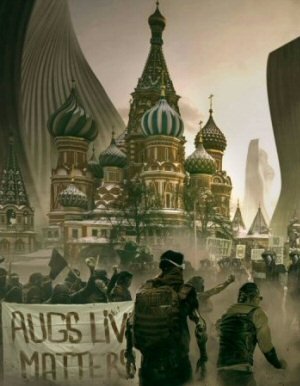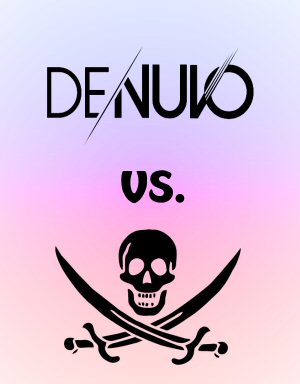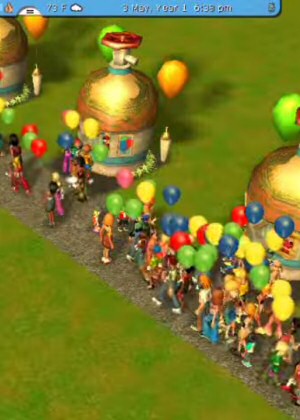This week I talked to my podcast-mate Paul about my book The Witch Watch. Paul is interested in writing a sequel. Here’s an excerpt if you want to get a feel for the original.
Spoilers for my 2012 novel below.
I’d planned on making a sequel. The book feels almost like an origin story for a group of adventurers. Alice is the leader but somewhat of a glass cannon. Simon is your hacker stereotype that can know an unlimited number of expositional things about the magic arts and can pull off some amazing magical tricks, but he’s not much use in a fight. Gibert is our brutish comic relief. Moxley is the Commissioner Gordon of the group, aiming the team at problems and providing a more grounded point of view. I love how the parts fit together and how easy it would be to continue the story.
Maybe it would be cool to have Gilbert visit the American west as an undead cowboy? We could ride some steam trains and see what magic is like in the lawlessActually, by 1885 the west was getting pretty dang civilized. But that’s good story fuel. The wild lawless world is being tamed, and the encroaching arm of civilization is putting pressure on various practitioners of the magic arts. west. Maybe the group could visit Stonehenge and discover it’s actually a powerful sorcery circle and they have to tangle with a cult. Maybe they could head to a British colony for an adventure and find that magic is viewed and practiced differently around the world.
Also, for whatever reason I set up the world so that you’re born a wizard but must study to become a sorcerer. It made sense at the timePossibly because I hadn’t mapped out the world before I started., but this is backwards from how the two are portrayed in other media. To smooth over this, I thought it would be fun to embrace this discrepancy as part of the setting. As it turns out, the English have inverted the two words compared to the rest of Europe, and people from the mainland are always haggling with Alice over this bit of nomenclature like people arguing about which side of the road is the “correct” one to drive on.
The book is ripe for a sequel, but I’ve never been able to get myself interested in the project. I like world-building, not so much world-maintaining. But hey, why can’t we just let other people write sequels?
I told Paul to go for it. And for the record, the same goes for everyone else. I doubt there’s a huge group of people out there looking to work on the Witch Watch Expanded Universe, but I think the idea of an open setting is a fun one. Just like anyone can write their own Alice in Wonderland story and publish it, anyone ought to be able to take the Witch Watch setting and do what they like with it.
I don’t know if it’s possible to do this in an official way. Sure, I could have put my book in the public domain, but then I’d lose the ability to sell it for money while prohibiting other from doing the same. I don’t think there’s a Creative Commons license for “I retain the right to THIS book, but you’re free to use the setting and characters in your own work without asking permission and without needing to pay me”. It seems like that would be a useful sort of license to have.
I have no idea what Paul plans for the book.
In other book news, I’m still working on my next novel, which is Cyberpunk-ish. It’s mostly an excuse to do something new with AI because I’m sick of seeing “AI loses its mind and tries to kill everyone” plots.
I’m done with the writing. The editing is about 20% done. The cover is done. After the editing is complete we still have to format it for ePub. The goal is to have it done by the end of the year.
Fingers crossed.
Footnotes:
[1] Actually, by 1885 the west was getting pretty dang civilized. But that’s good story fuel. The wild lawless world is being tamed, and the encroaching arm of civilization is putting pressure on various practitioners of the magic arts.
[2] Possibly because I hadn’t mapped out the world before I started.
Playstation 3

What was the problem with the Playstation 3 hardware and why did Sony build it that way?
Twelve Years

Even allegedly smart people can make life-changing blunders that seem very, very obvious in retrospect.
Deus Ex and The Treachery of Labels

Deus Ex Mankind Divided was a clumsy, tone-deaf allegory that thought it was clever, and it managed to annoy people of all political stripes.
Denuvo and the "Death" of Piracy

Denuvo videogame DRM didn't actually kill piracy, but it did stop it for several months. Here's what we learned from that.
Bowlercoaster

Two minutes of fun at the expense of a badly-run theme park.
 T w e n t y S i d e d
T w e n t y S i d e d

I just went and checked out the link to the old excerpt, and notice some wrongly encoded bit there:
I bet this is the result of one of those “smart” quotation marks that some software (e.g. MS Office) like to sneak in unless you expressly disable it.
Have you read Simon Morden’s Equations of Life, Theories of Flight, amd Degrees of Freedom? They did some new stuff with A.I., beyond the typical.
Strongly recommend these books for anyone who hasn’t read them! I actually read “The Curve of the Earth” first without even realizing it was a sequel. When I read the books in the proper order, I found the progression of events to be logical, internally consistent, and as satisfying as ever. The setting really does do some cool stuff with transhumanism and A.I. and served as my gripping introduction to cyberpunk.
In conclusion, I love the Metrozone series. Thank you for coming to my TED talk.
Oooh! The Witch Watch in the British Colony India. With all the foreign Hindu Sorcery vs. Tibetan Magic. Sorcery circles never seen, because they are more a rhombus than a circle. That would be very, very fascinating.
Or Germany at the peek of Bismarcks power.in 1890 till his death in 1898. Maybe in book 3.
Yeah, no. Shamus’s stance on politics is not suited to a historical situation as politically-charged as any of the British Colonies. Ignoring the political implications of what’s going on there is a very pointed political statement, and one that would be correctly taken as insulting by a large chunk of people.
That’s the same reason I’m not keen on a sequel by Paul.
Yeah, the stuff I write… it certainly isn’t for everyone. Especially since one of the aspects of this particular story I’m keen to explore is “Why is the church so intent on killing everyone associated with magic?” I want there to be a compelling reason, for the villains to be somewhat sympathetic.
I’ve also had some real-life first-hand experiences with unusual things associated with the occult, so that’s going to show up at some point, if for no other reason than catharsis. And of course if you read some of the old sources, magic and witchcraft are all twisted up with what moderns tend to term “lovecraftian entities”.
I’m still trying to figure out what direction I want to take this myself. Treading water in the sunlight would be fun, but the water is real deep here.
This attitude takes all the fun out of fantasy.
And this attitude leaves a large portion of published works no fun for many people to read. What your book says matters to people. That includes both what you intend to say and what people see in it. If the only books you like are ones with no meaning whatsoever, go read…actually, I don’t think there’s anything you can read in that case.
Not every book is for every person. If you want a deep dive into the politics of 19th century British imperialism that flatters your ideological sympathies, maybe a fun, light, escapist fantasy novel isn’t the book you should pick up. And while it’s obviously fine to say “I wouldn’t like that novel and wouldn’t read it,” as everyone’s tastes are valid, agitating for it not to be written at all is an attitude that’s almost… dare I say it… imperialist in and of itself.
Setting a fun escapist fantasy in British-occupied India is like setting one in WWII-era Germany. You either take a strong stance that the dudes committing genocide are automatically bad guys, or people will assume you agree with them, because how can you write something where they aren’t? Shamus isn’t going to be as willing to be political as, say, Inglorious Basterds, so he needs to avoid the historical period where it’s a problem.
You don’t have the authority to tell people what they “need” to write or not write, sorry.
Nonsense.
Or you don’t mention this topic at all. In the original Witch Watch the group went to Americas East Cost. But they didn’t mention the topics of native american reservations or of Irish immigrants or how the life was only 20 years after the civil war.
The Witch Watch is a light novel about occult fantasy in an alternative but similar history and that could happen without mentioning a genocide.
Leaving it out will upset some people who think it has to mentioned in some level, writing about it will upset some people (overlapping amounts) who think, that the writer didn’t do it right. An everyone-is-happy writing is simply not possible.
But: On the second suggested topic, if your write about Bismarck, you have to take some standpoint. Liberal, progressive, conservative or however. Moving around that isn’t easy and/or wouldn’t feel right. (Like AssCreed 3)
1900’s US, the genocide of the American Indians was mostly done, reconstruction was over, there is space to discuss things that aren’t them. There is no way to discuss British India that is not either talking about the genocide or pointedly ignoring it in favor of “Everything’s fine, the British are cool, nothing to see here”. This is the period where rapid technological development and social change was leading to large famines, while British administrators were simultaneously forcing the export of large amounts of food to Britain. Either you talk about the people starving in the streets or you consider them unworthy of attention, there’s not a middle ground.
Thanks for the ideological update comrade!
I think what you’d want to do is bring up an early real-life event, and then show it turned out differently. “The British take care not to agitate the natives because [alternate history event]” acknowledges the real-life concerns and avoids having to dwell on them as the story progresses.
If you ignore the implications entirely you get Omikron, where the morality of the body-swapping mechanic is totally ignored so the main character comes off as a psychopath casually murdering their way across town.
Having loved Free Radical, I’m looking forward to your next book.
I’ve loved both the novel Shamus has put on this site !
I’ll buy Witch Watch tonight, since apparently I can buy the ebook and read it on on my computer.
Bought it !
It’s not exactly the same thing, but the license under which open source character Jenny Everywhere was released might be relevant: https://en.wikipedia.org/wiki/Jenny_Everywhere
Huh, I swear there’s a minor character looking very much like that in Drew Karpyshyn’s Darth Bane trilogy…
So, after clicking on that excerpt link (which I had previously read, as well as the actual book) and reading the old comments, I’m left with one question;
Have you read any Terry Pratchett in the intervening years?
Heh. The Witch Watch has basically been a beacon for me to eventually get around to writing a book. Not for plans of making a living, just to prove I can finish a creative project of that magnitude and put it out there. I’ve got ideas, but have never started. I’m tempted to take you up on your offer, though perhaps with different characters in a different setting.
I do wonder if you’d only develop a headache for yourself, having to keep up with various people expanding your universe and having to ensure there are no contradictions. “Wait, someone mentioned that this version of Japan would be like this, but then in this person’s book it’s all about the aftermath of China, driven by the prowess of their magicians and technology combining, managed to conquer Korea and Japan in this alternate universe and the ensuing civil war that follows. How do I deal with this contradiction?”
Then again, if we’re comparing to the Star Wars expanded universe, we shrug it off and let the fans argue about it on the Internet.
Well, if you wanted to have multiple people working on it at the same time, the easiest way would be to carve up the setting into spatio-temporal chunks and then establish the boundary conditions. Define an overall arc and set some key character and world anchors. Then the other authors would be free to do whatever they want inside those constraints, and everything will match up. You could even have multiple mutually exclusive stories treating the same period and characters, and people could mix and match them depending on the kind of story that they wanted.
The problem with this approach is that you miss out on the opportunity to refer to specific events and do call-backs to in-jokes. Or, you could still do that, but it would have to be iterated.
Stephen King had this thing he called the One Dollar Project, or something like that for a bit, to promote new, young talent.
Basically, for a while, he sold the movie right to some of his stuff for a dollar. Meaning he kept the rights to the books themselves, but people had a chance to toy around with his stuff.
Fake Edit: Found it:
https://en.wikipedia.org/wiki/Dollar_Baby
Might be worth looking into. And King’s apparently still offering that deal (if with more strings attached then I’d recalled), so that was neat learning.
The wizard/sorcery divide is actually purely alliterative. Simon will always be a sorceror, Wally will always be a wizard.
If your name doesn’t start with S or W, you’re a mage.
FWIW Shamus, I’ve been looking forward to your cyberpunk book since you first mentioned it. I’ll buy it the moment it comes out.
Shamus, Creative Commons Attribution (CC-BY) or Creative Commons Attribution Share Alike (CC-BY-SA) is probably the closest to what you want.
“If you remix, transform, or build upon the material, you must distribute your contributions under the same license as the original”
https://creativecommons.org/licenses/by-sa/4.0/
This means that the rest of the work (that incorporates the original work) must not have a more restrictive license, you are basically enforcing the license on the full derivative work.
By comparison a CC-BY license allows incorporation/use of the original work but the derivative work do not need to be under CC-BY (only the parts that are CC-BY).
So what you could do is have a custom license that stipulates that after a certain time the license changes to CC-BY-SA.
So for example after a year the license changes from a custom one to CC-BY-SA.
This would basically “sunset” the work after the specified period.
Those making a derivative work would be doing so under CC-BY-SA (a year later or so after the publishing of the original), and the text “under the same license as the original” is interesting as it should allow someone like Paul to re-use the same license as the original (with the same sunset period).
This is clearly bending that definition of CC-BY-SA a lot, but it should be okay as the original license is made more permissive after a time rather than restrictive. The thing is though that this is technically a dual license (although with a timed activation of the second license), and usually people can choose witch of the dual licenses to use. Paul in this case would in theory be able to choose between CC-BY-SA or your custom license (with the timed conversion to CC-BY-SA).
Thing is, I can’t from the top of my head recall seeing anyone ever doing this. It’s usually a “dual licenses” (but I’ve sometimes seen even three) two open sources licenses. Or separate licenses where one is for example CC-BY-SA and it’s free (and open source) and then a different copy that you must pay for or contact the creator for use commercially (not open source).
BTW! Wikipedia for example prefers CC-BY-SA as that allows them to sell the CDs or DVDs with copies of Wikipedia on them (especially nice in countries/places with poor to no internet at all); unlike CC-BY-NC which forbids any commercial sale.
Oh and for those confused, CC-BY (the most permissive Creative Commons license) is basically public domain but with attribution. Sure there is “CC0” (aka public domain), but that one is not possible in some countries (if you sign or attribute the work, which would be common for books).
Releasing a work (re-publishing?) as CC-BY or CC-BY-SA is nice, and one can still sell it as well (but know that free copies will float around obviously), this depends on whether you think the book has reach it’s end of sale or not. Sure there might be spikes in the far future of popularity, but you could leverage that by selling a new edition maybe.
But I’d suggest making a second work, a sort of source book for your original book. Where you have the bio of the characters and details of the world and things, along with “Author notes” (not meant to be known/read by readers of te original book) that future authors can use to understand your justification for this or that. And sell that.
Why a source book? Because this will allow other writers to use that source material to create new stories. It is unlikely that another author wants to reuse paragraphs or sentences from the original book nor descriptions of stuff.
But a source book on the other hand is a different matter.
The thing to keep in mind here though is that you can only use CC-BY on a sourcebook as using CC-BY-SA could force the CC-BY-SA license on the whole derivative works that uses elements from the sourcebook (unless that is your intention).
I’m a bit uncertain if CC-BY-SA applies to a derivative sourcebook or to books that use stuff from the sourcebook. The full CC-BY-SA legal text should clarify this though (it’s on the CC site somewhere).
Maybe a dual license could make more sense though. The sourcebook is under CC-BY. And the story book has a custom license that stipulates that after x amount of time the storybook is considered part of the sourcebook. Then again, if you are still alive then it’s a simple matter of re-releasing it under the new license anyway.
Sorry if this is making things more confusing than not for you Shamus.
For software it’s relatively easy IMO. It’s either closed source (and thus no license/custom license) or it’s the zlib/PNG license. (I only like that license because it’s DISCLAIMER is not in all caps like it is with the MIT or the “2 clause BSD” license, otherwise the three licenses are basically the same)
For music I’ve decided on CC-BY (my old music is under the international v3.0 CC-BY as The Internet Archive did not support/have v4.0 of CC-BY yet, only difference is that v4.0 merged all regional variants into a single international one). I still sell my old music (under my old artist name) but the CC-BY license also allows people to do whatever they want with the copies they get from The Internet Archive as long as I’m credited. The copies sold are not under CC-BY though, ironically their quality is less (lossy) compared to the FLACs I uploaded to the archive.
BTW! If you decide to go for CC-BY then maybe you should put a copy on The Internet Archive for posterity, it’s the closest thing to a international library there is currently.
I really hate replying to myself but.
Here’s a example on use of CC-BY and CC-BY-SA.
Take Shamus and Paul for example:
Shamus writes a storybook and release it under CC-BY-SA and a sourcebook under CC-BY.
Paul can take stuff from the sourcebook and use that, as long as he credits Shamus for the stuff he uses from the sourcebook (maybe being so nice as to specify what parts in particular, Paul does not need to release his book as CC-BY, and any new characters he makes is his own.
Paul can not use anything from the storybook without also releasing his own book under CC-BY-SA.
The way CC is designed is that you can not restrict a license. So even though the storybook has a CC-BY-SA license the sourcebook has a CC-BY license (which is more permissive) so any characters or info in that takes priority over the ones in the storybook licensewise.
But here’s the thing though which complicates it all, if you create a world that you wish to share (say using a sourcebook) then one might assume CC-BY-SA would be best as that would force anyone that adds characters to this universe to release them under CC-BY-SA as well thus virtually adding to the sourcebook.
I guess it’s possible to use CC-BY-SA and add a stipulation to it that states the SA (ShareAlike) applies only to the sourcebook itself (i.e. modifications or derivations of it, say somebody adding a bunch of characters or re-editing and republishing) and that usage of any characters or other details from the sourcebook is under the CC-BY license.
As such a stipulation would make things more permissive this is actually okay under the Creative Commons license idea.
It does make the sourcebook a hybrid of CC-BY and CC-BY-SA though. The complicating issue is where the line of a “derivative work” or “adaption of a work” is drawn.
This seems to explain ShareAlike better https://wiki.creativecommons.org/wiki/ShareAlike_interpretation
I guess by looking at the “photo example” near the bottom of that wiki that CC-BY-SA might actually be what you want for a sourcebook.
I guess one could argue that adding a character to the storyworld is the same as adding that character to the sourcebook (which describes the world).
But looking at other text in that wiki this seems to not be the case. Paul for example would have to add his character to the sourcebook (thus edit it) for his character to Fall under the CC-BY-SA license also.
Using CC-BY-SA on a storybook for example would force a translation of the book to also be released/sold under the CC-BY-SA license. Which generally is what one might want. If the storybook was released under CC-BY then a translation don’t have to use the CC-BY license (but the original creator must still be credited though).
I guess a audiobook reading would be similar to a translation then as well.
Aside from the specific license in use (I don’t really know enough about them to be of much help, unfortunately), producing a separate sourcebook published in some measure in the public domain was the first workaround that came to my mind, too. It would also help new writers maintain consistency, since it’d be presenting them with all relevant information in a systematic, streamlined manner.
It would also be a lot of work to put together.
So is this week’s podcast supposed to be posted somewhere, or…
No podcast this week, Shamus spent the time working on the book instead!
Excited to see where this goes! Here’s the forum thread: https://www.shamusyoung.com/forums/viewtopic.php?p=50398#p50397
How did Lucasfilm handle the Star Wars Expanded Universe? It seems like that license might be a place to start from.
Fortuitous timing as well. I just unpacked my signed and numbered Colecters editon and gave it a proper space on a shelf.
Bit late to the party here, but eh, never mind. On the AI goes crazy and kills everyone thing, I can’t agree more, super tired trope. I’m writing a book (actually a weekly series for Patreon first, then it’ll be put on Amazon when complete) involving an AI and I’m doing all I can to avoid that trope, heh.
Funnily enough, it started out as a huge (Shamus long-form complaining levels, around 40k words) critique of Fallout 3’s nonsensical world where I proposed various improvements and changes while remaining basically true to the original designers’ ideas. Eventually I felt like my ideas were better served as part of a new work of my own.
The idea is that Earth was devastated by an extraterrestrial impact (a meteor) and the setting is therefore post-apoc, but not directly man made. My AI inhabits an orbital city in geostationary orbit over the Atlantic, and has minimal interest in Earth itself, beyond whatever conflict might arise while going about its own business (sending its people down to collect supplies and resources it needs for its own goals).
It’s not insane, it doesn’t hate humans, but conflicts arise simply due to difficulties with people on the surface getting in the way for various reasons. Still working out some of the specifics, but that’s the basics. Looking forward to actually writing it… just as soon as my current series is done.